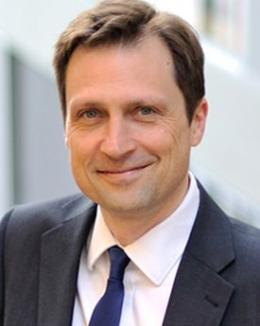报告人:Peter M. Atkinson(杰出教授)
时间:2022.6.22 16:00-17:30
Zoom会议:815 378 37745
密码:见邮件或班级通知
报告人简介
Peter M. Atkinson is Distinguished Professor of Spatial Data Science at Lancaster University, Lancaster, UK where he is also Executive Dean of the Faculty of Science and Technology. He is currently Visiting Professor at the University of Southampton, Southampton, UK and at the Chinese Academy of Sciences, Beijing, China. Professor Atkinson has authored more than 350 peer-reviewed articles in international scientific journals, one book and over 50 refereed book chapters. He has also edited 11 journal special issues and eight books. He has held many large grants from a wide variety of funders and supervised over 60 PhD students. His research interests are highly interdisciplinary with a focus on remote sensing, geographical information science and spatial (and space-time) statistics applied to a range of environmental, epidemiological and socioeconomic problems. Professor Atkinson has an H-index on Google Scholar of 81 and an H-index on Web of Science of 60. He is a Fellow of the Learned Society of Wales. He was the 2020 Distinguished Lecturer of the International Association of Mathematical Geosciences (IAMG), Laureat of the Peter Burrough Medal 2016 of the International Spatial Accuracy Research Association (ISARA), was awarded the Belle van Zuylen Chair 2014 with Utrecht University, Utrecht, The Netherlands and was Visiting Fellow at Green-Templeton College, Oxford University in 2012-14. Professor Atkinson is Editor-in-Chief of Science of Remote Sensing, the open access sister journal of Remote Sensing of Environment.
报告内容
Through a career in interdisciplinary science based on a focus on methodological innovation in techniques such as remote sensing, spatial statistics, geostatistics, machine learning, AI and numerical simulation modelling, I will attempt to draw out some (potentially) useful learnings (mainly from things that I did wrong) that can serve as tips and advice for aspiring young scientists. Much of this will be personal and subjective opinion that lacks evidence, while some of it will be more grounded in and shared with the richer and wider experience of others. I will talk less about the science itself, and more so about the act of doing science and the processes that support it, and the sharp and sometimes painful experiences that are so important in terms of learning and improving for the future. As such, this talk is not at all meant to be a definitive guide, but rather a conversation starter that can help individuals think critically about their own experiences and make sense of these. If one’s thinking is correct then one might expect this to lead to a richer world-view and mental scaffolding (e.g., internal mental heuristics and short-cuts) that increases the likelihood of future success in research both in terms of scientific discovery and methodological innovation but also, consequently, in terms of career. Thus, this talk is not a standard research talk. I hope to start the conversation building on my own experiences and then take part in a wider discussion around these topics.